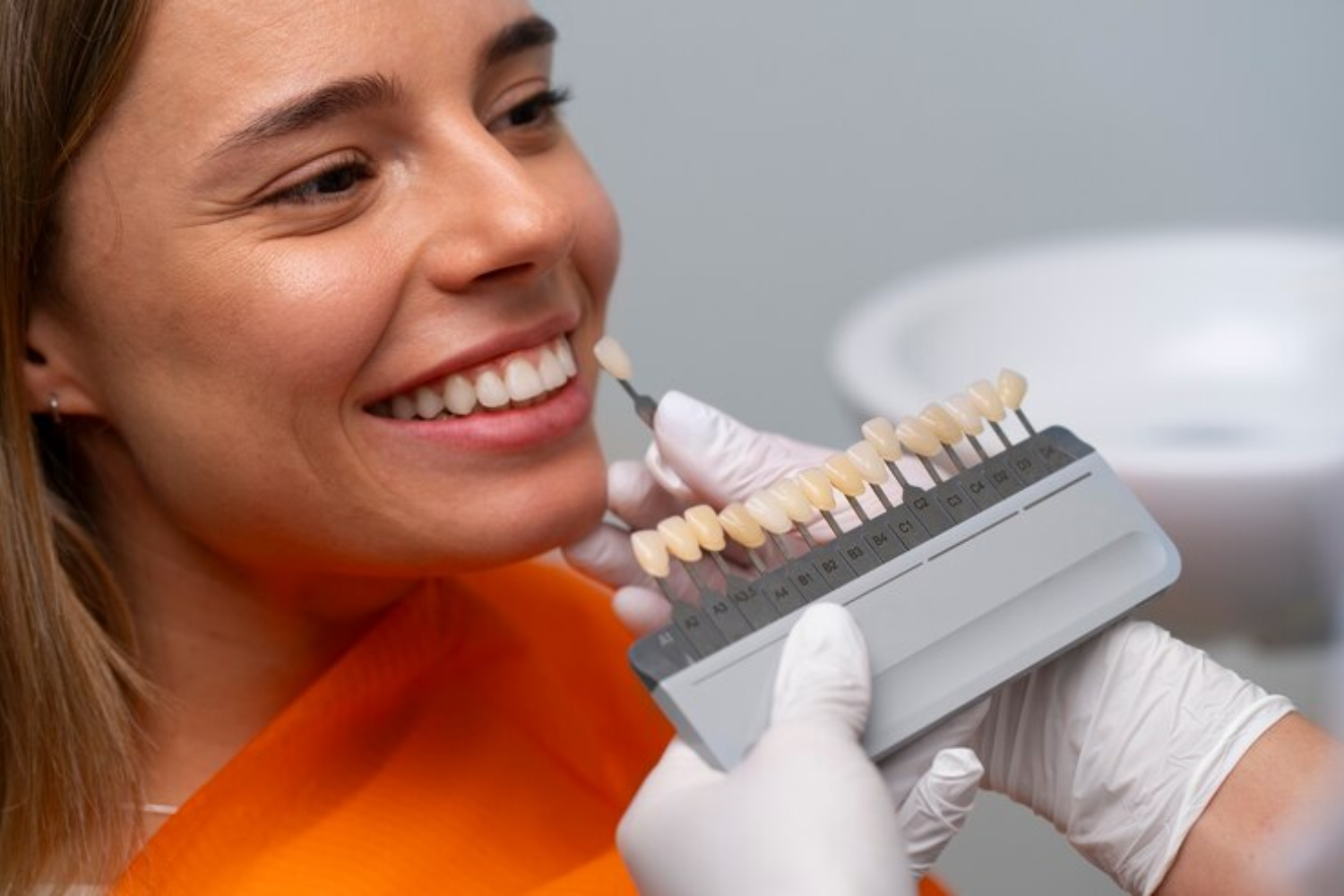Dental veneers are an excellent solution for enhancing the appearance of your smile by covering imperfections like discoloration, chips, or gaps in teeth. While this cosmetic dental procedure is generally straightforward and yields beautiful results, some individuals may experience unexpected pain or discomfort afterward. If you find yourself dealing with major pain after getting dental veneers, it’s essential to understand the possible reasons behind it and know how to manage and alleviate your discomfort effectively. This comprehensive guide will walk you through the potential causes of pain after veneer placement, steps you can take at home to relieve pain, when to seek professional help, and long-term care tips to ensure your veneers remain in optimal condition.
Understanding Dental Veneers
Dental veneers are thin, custom-made shells typically made from porcelain or composite resin. They are bonded to the front surface of your teeth to improve their appearance, altering their shape, size, color, or length. Veneers are a popular choice for those looking to achieve a more uniform smile without extensive dental work.

Potential Causes of Major Pain After Getting Dental Veneers
- Sensitivity Post-Procedure: It’s common to experience heightened sensitivity to hot or cold foods and beverages immediately after getting veneers. This sensitivity usually diminishes as your teeth adjust to the new veneers.
- Fit and Bite Issues: If your veneers are not properly aligned or if your bite feels uneven, it can lead to discomfort or pain when chewing or biting down. Your dentist may need to make adjustments to ensure a proper fit.
- Gum Irritation: Poorly fitted veneers or edges that are too close to the gum line can cause irritation and soreness in the gums.
- Underlying Tooth Issues: In some cases, underlying dental problems such as decay or infection may become apparent after veneer placement, causing pain or discomfort.
- Temporary Cement Sensitivity: If temporary cement was used during the veneer placement process, it can sometimes cause sensitivity or discomfort until the final bonding is complete.
Steps to Manage Major Pain After Getting Dental Veneers
If you’re experiencing significant pain or discomfort after getting dental veneers, here are some steps you can take to manage it:
- Contact Your Dentist: Notify your dentist immediately about your symptoms. They will assess the cause of your pain and recommend appropriate treatment.
- Take Pain Medication: Over-the-counter pain relievers such as ibuprofen or acetaminophen can help alleviate discomfort while you await professional evaluation.
- Avoid Hard Foods: Stick to a soft diet to prevent exacerbating any discomfort or causing damage to the veneers.
- Apply Ice Packs: If there is swelling or inflammation, applying an ice pack wrapped in a cloth to the outside of your mouth can help reduce these symptoms.
- Maintain Good Oral Hygiene: Continue to brush and floss gently around the veneers to keep them clean and prevent further irritation.
When to Seek Professional Help
While some discomfort is normal after getting dental veneers, certain symptoms warrant immediate attention from your dentist:
- Severe or Prolonged Pain: Pain that persists or worsens over time.
- Swelling or Redness: Significant swelling or redness around the gums or veneered teeth.
- Difficulty Biting or Chewing: Inability to bite down or chew properly due to pain or misalignment.
- Loose Veneers: If a veneer feels loose or moves out of place.
Promptly addressing these symptoms can prevent further complications and ensure your veneers are functioning properly.
Long-Term Care Tips for Dental Veneers
To maintain the longevity and appearance of your dental veneers, consider the following tips for long-term care:
- Regular Dental Check-ups: Schedule routine visits to your dentist for check-ups and professional cleanings to monitor the condition of your veneers.
- Avoid Hard Objects: Refrain from biting down on hard objects such as ice cubes or pens, as this can damage your veneers.
- Use a Mouthguard: If you grind your teeth at night (bruxism), wearing a custom-fit mouthguard can protect your veneers from excessive wear and tear.
- Practice Good Oral Hygiene: Brush your teeth at least twice a day with a soft-bristled toothbrush and fluoride toothpaste. Floss daily and use an alcohol-free mouthwash to maintain oral health.
- Address Concerns Promptly: If you notice any changes in the fit or feel of your veneers, or if you experience new discomfort, contact your dentist promptly for evaluation and adjustment.
Experiencing major pain after getting dental veneers can be distressing, but understanding the potential causes and knowing how to manage your discomfort effectively is crucial for a successful recovery. By promptly addressing any pain with your dentist and following their recommendations, you can alleviate discomfort and ensure the longevity of your veneers. Remember, your dentist is your partner in achieving and maintaining a beautiful smile, so don’t hesitate to reach out for guidance if needed.
For personalized advice or to address any concerns about your dental veneers, contact your dentist today. With proper care and attention, you can enjoy the confidence and aesthetic benefits of your new smile for years to come.

